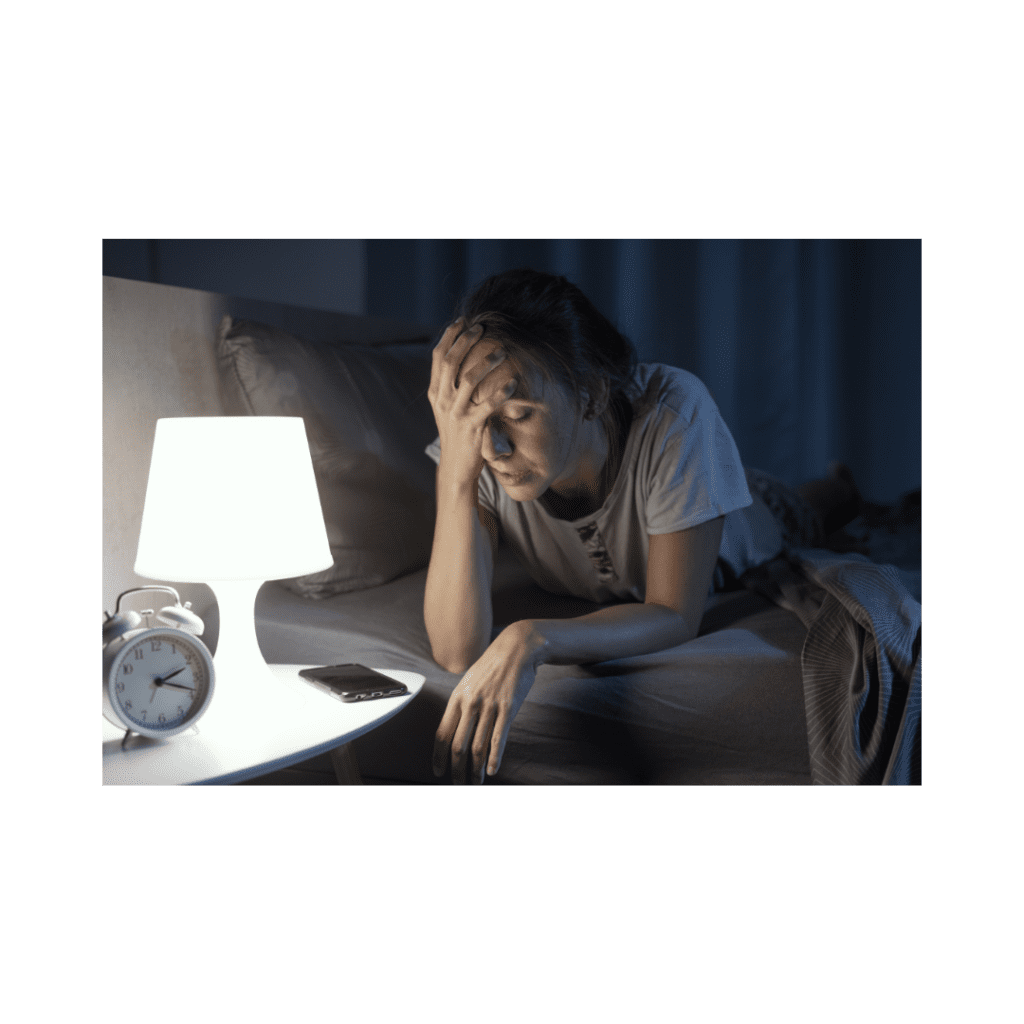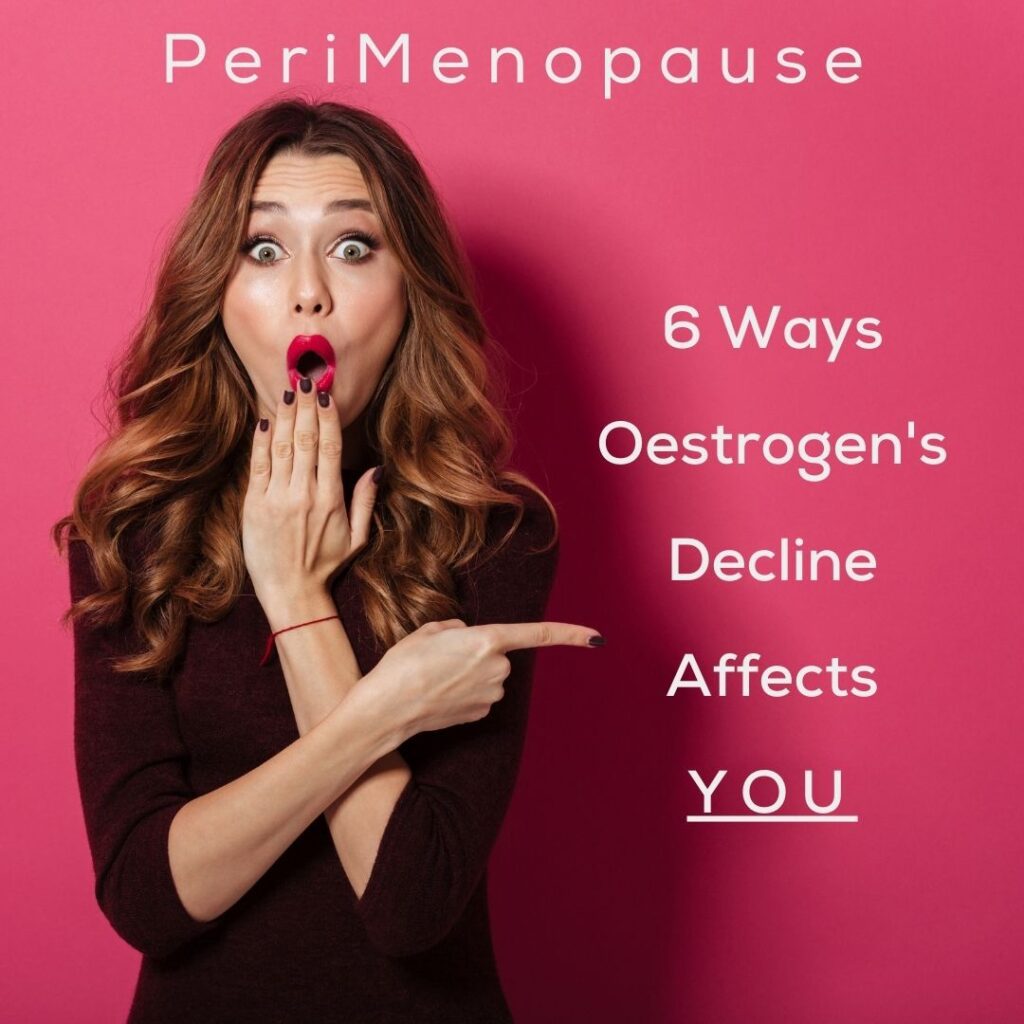Are you in your late 30s, 40s, or early 50s and struggling with sleep?
You’re not alone. Many women in their perimenopausal years experience sleep issues that go beyond the occasional restless night. As a naturopath going through menopause myself, I understand how disruptive sleeplessness can be—not just physically, but mentally and emotionally.
In this blog, we’ll delve into the reasons behind sleeplessness during perimenopause and explore how a lack of sleep can significantly affect your overall health. From hormonal imbalances to hot flushes, we’ll unravel the common culprits that are standing between you and a good night’s rest.
Why Perimenopause Affects Sleep:
Hormonal Fluctuations:
During perimenopause, your body’s production of oestrogen and progesterone, two hormones that help regulate sleep, begins to fluctuate wildly. (This may be the first sign you may recognise as a perimenopause symptom). Oestrogen helps with restful sleep by maintaining stable serotonin levels, while progesterone has a sedative effect. As these hormones fluctuate, the delicate balance that supports sleep is disrupted, making it difficult to fall and stay asleep.
Hot Flushes
One of the hallmark symptoms of perimenopause is hot flushes, which are sudden waves of intense heat that can strike day or night. They can feel like a fire is starting in the middle of your body. Night sweats often accompany hot flushes, waking you up at random times during the night, leaving you drenched and uncomfortable- and then sometimes freezing cold once it’s over!
This constant disruption can quickly lead to sleep deprivation.

Stress and Anxiety
Hormonal shifts during perimenopause can trigger anxiety and heightened stress levels, making it harder to relax and fall asleep. Women often find themselves worrying about physical and emotional changes, family responsibilities or issues, work pressures and this can make it nearly impossible to switch off. This heightened state of unrest fuels sleeplessness and makes falling back asleep difficult when you wake up in the night.
Breathing Disorders
As many as 20% of midlife women experience sleep-disordered breathing, such as sleep apnoea. These conditions cause repeated interruptions in breathing during the night, further fragmenting sleep and leading to feelings of fatigue during the day.
Movement Disorders
Restless legs syndrome (RLS) and other movement disorders tend to increase around menopause. RLS causes uncomfortable sensations in the legs, often prompting involuntary movements that can wake you up and disturb your sleep.
Lifestyle Factors
Caffeine (coffee, strong green tea and energy drinks), alcohol (yes- wine, champagne spirts and beer), stress, and even the physical discomfort of chronic pain can add another layer of complexity to sleep issues during perimenopause. Both caffeine and alcohol can interfere with your ability to fall asleep and stay asleep, while stress exacerbates insomnia. If you drink alcohol before bed, then you are choosing to wake up around 2 or 3 am!!
How Lack of Sleep Affects Your Health During Menopause:
When you’re not getting enough sleep, it’s not just about feeling tired the next day. Sleep deprivation during perimenopause can have far-reaching effects on your mental, physical, and emotional health.
Let’s break down the key areas where lack of sleep can cause the most harm:
Mental Health: Increased Risk of Anxiety and Depression
Poor sleep has a profound impact on your mental health: It’s not just that sleep deprivation makes you irritable—it can exacerbate anxiety and depression, conditions already common during perimenopause due to fluctuating hormones. Lack of restorative sleep can alter brain chemistry, lowering serotonin levels, which plays a role in mood regulation.
Sleep loss also impairs cognitive function: Yes, that brain fog making it harder to concentrate, solve problems, or recall information—often referred to as “brain fog.” This can be incredibly frustrating, leaving you feeling overwhelmed by even the simplest tasks.
Physical Health: Insulin Resistance and Weight Gain: One of the lesser-known effects of sleep deprivation is its link to insulin resistance. When you don’t get enough sleep, your body struggles to use insulin effectively, which can lead to higher blood sugar levels. This is particularly concerning for women in perimenopause, as hormone fluctuations already put you at a higher risk of developing type 2 diabetes.
Chronic sleep deprivation can also contribute to weight gain, particularly around the belly, which is common during menopause due to changes in fat distribution. Poor sleep affects the balance of hunger hormones—ghrelin and leptin—leading to increased appetite and cravings for high-calorie, sugary foods. It becomes a vicious cycle, as weight gain, particularly belly fat, is linked to insulin resistance, creating a loop that’s hard to break.
Emotional Well-being: Increased Irritability and Relationship Strain: It’s no surprise that lack of sleep can make you feel more irritable, but it can also take a toll on your emotional relationships. When you’re constantly tired, your patience wears thin, making you more likely to snap at loved ones or struggle with emotional regulation. This can strain your relationships, adding stress to your life and potentially worsening your sleep problems.
Sleep deprivation also lowers your ability to handle stress. When you haven’t rested well, your body is in a heightened state of stress, releasing more cortisol (the stress hormone) during the day. This can make even minor problems feel overwhelming, feeding back into the cycle of stress and sleeplessness.
Solutions Are Within Reach
The perimenopausal period can bring about complex sleep disturbances, but with the right approach—including lifestyle changes, herbal medicine, and natural supplements—restful sleep is within reach. In our next blog, we’ll dive into natural solutions to help you reclaim your rest. From herbal remedies like chamomile and kava to essential sleep hygiene tools, I’ll share tips that really work.

Sleep is more than just a nightly reset—it’s a cornerstone of your mental, physical, and emotional well-being. During perimenopause, it’s easy to feel like restful sleep is slipping out of reach, but understanding why you’re struggling is the first step to regaining control.
If you’re battling persistent sleep problems, stay tuned for our next blog, where we’ll offer natural solutions to help you reclaim the rest you deserve.




